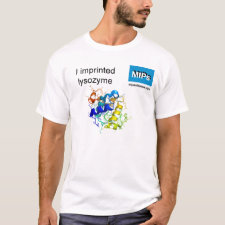
Authors: Qin L, He XW, Jia M, Li WY, Zhang YK
Article Title: A Thermosensitive Monolithic Column as an Artificial Antibody for the On-line Selective Separation of the Protein.
Publication date: 2011
Journal: Chemistry - A European Journal
Volume: 17
Issue: (5)
Page numbers: 1696-1704.
DOI: 10.1002/chem.201000875
Abstract: Abstract: The main objective of this study was to develop a new methodology for the preparation of a protein (antigen) that is a molecularly imprinted polymer (MIP, an artificial antibody) modified onto the surface of a silica skeleton in which the resulting stationary phase is thermosensitive. The silica monolithic skeleton with vinyl groups was synthesized in a stainless-steel column by using a mild one-step sol-gel process with two types of precursor: methyltrimethoxysilane (MTMS) and γ-methacryloxypropyltrimethoxysilane (γ-MAPS). Subsequently, three types of the thermosensitive protein MIP were anchored onto the surface of the silica skeleton to prepare the MIP monoliths, which were systematically investigated for back pressure and separation ability at different temperatures to establish good imprinting conditions. Under the optimized imprinting conditions, the chromatographic behavior of the thermosensitive MIP monolith exhibited strong retention ability for the lysozyme template (target antigen) in relation to the nonimprinting monolith (NIP monolith). The imprinting factor (IF) for lysozyme reached 3.48 at 20 °C. Moreover, this new type of artificial antibody displayed favorable binding characteristics for lysozyme over competitive proteins and was further evaluated to selectively separate lysozyme in a real sample by using an on-line method. The run-to-run and column-to-column repeatability measurements of the thermosensitive MIP monoliths were also satisfactory
Template and target information: protein, lysozyme
Author keywords: antigens, imprinting, monolith columns, proteins, thermosensitivity



Join the Society for Molecular Imprinting

New items RSS feed
Sign-up for e-mail updates:
Choose between receiving an occasional newsletter or more frequent e-mail alerts.
Click here to go to the sign-up page.
Is your name elemental or peptidic? Enter your name and find out by clicking either of the buttons below!
Other products you may like:
 MIPdatabase
MIPdatabase









